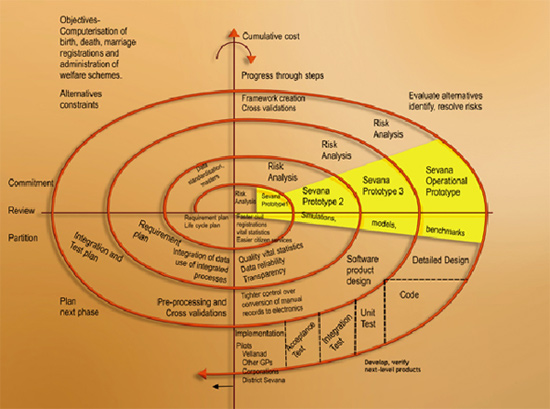Information Kerala Mission, by its very design and objectives envisages exploration of new paradigms of electronic governance that would essentially help the administrative system get rid of the procedural delay and lethargy that have accumulated through ages, and improve the transparency and efficiency of the system of service delivery. This in fact was the reason behind the Mission’s resolve to develop alternative models for software development, which is participatory and human–centered in every respect. Accomplishment of this objective required an altogether different methodology, which would permit user participation at the analysis, prototype design, testing, and implementation stages. The Mission also had the prescience that the participatory approach together with the efforts to capture the user ambience would help to integrate a business process reengineering (BPR) component, in the technology development programme. It would inevitably bring out tangible benefits in the governance systems for public administration.
IKM applications are developed using state-of the art technology. All applications have local language interfaces and customized versions for various types of local bodies. They are user-friendly with a very high level of standardization. The applications have been designed for scalability to handle databases of all local bodies. They rank high on the reliability with extremely low failure levels. Security of applications is ensured through multi-layer user authentication and mechanisms for regular backup and data security. For application development IKM has adopted an open realistic technology choice leveraging on mainstream technologies with adequate care to avoid dependence on any single technology (status of deployment >>).
The Mission had been resorting to an innovative iterative model of software development called the Barry Boehm’s Spiral Model wherein new versions of an application is repeatedly perfected through field trials

